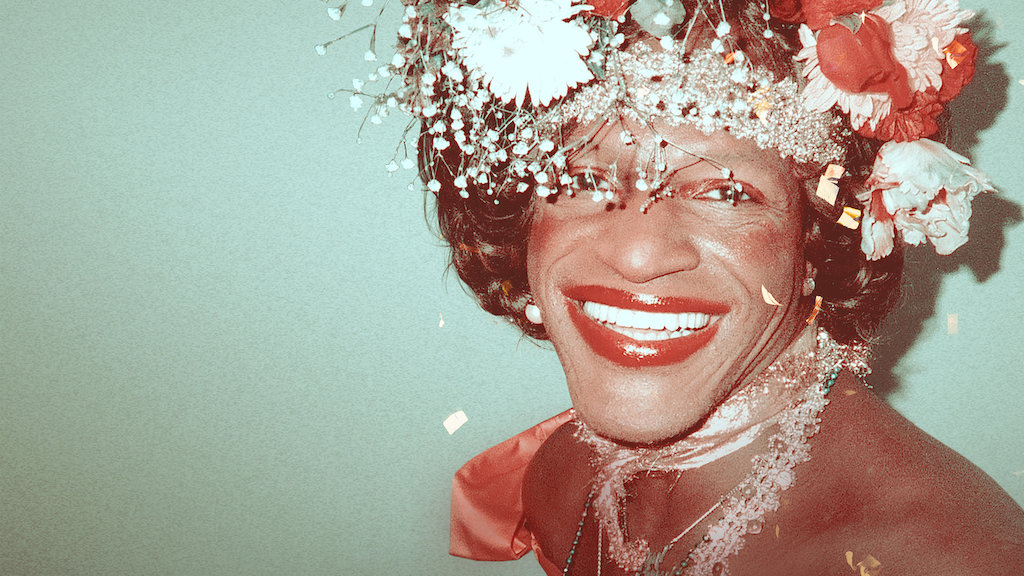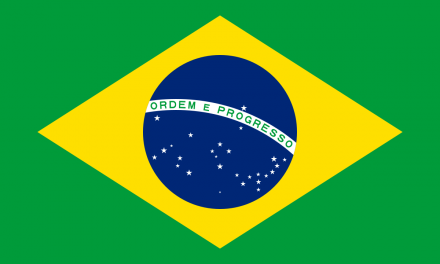(Photo Credits: Screengrab from Netflix)
Black History Month 2020 is underway guys and so, in line with this, we’d like to honor African American transgender woman, drag performer, and LGBTQ rights activist Marsha P. Johnson. Marsha is best remembered as a transgender rights pioneer and as one of the key figures of the 1969 Stonewall Rebellion.
Stonewall rebellion, also referred to as the Stonewall uprising, refers to the series of riots by the members of the LGBT community following the police raid that happened in Stonewall Inn—a gay bar in the Greenwich Village section of New York City—at around 1:20am on June 28, 1969.
Reportedly, Marsha was a “prostitute and a fixture of street life in Greenwich Village for nearly three decades.” A model for Andy Warhol, Marsha is “honored as a Stonewall instigator.” She is credited as one of the vanguards who resisted the police, says David Carter in his book titled, “Stonewall: The Riots That Sparked the Gay Revolution.” According to various accounts, Marsha “climbed a lamppost and threw a very heavy object that was in a bag and shattered a police (car) window.” She was only 23 during the Stonewall incident.
Ms. Johnson suffered from a “severe mental illness” and was “usually destitute and, for much of her life, effectively homeless.” In spite of her own hardships in life, she found success as a drag queen and toured the world with the Hot Peaches. Apart from organizing protests, Marsha also founded a trans-youth organization called Street Transvestite (now Transgender) Action Revolutionaries or STAR in 1970 along with another transgender woman, Sylvia Rivera, her close friend. STAR was a shelter for gay and trans homeless youths that was funded by both Marsha and Sylvia with “money they made themselves as sex workers.” Because of her help and her valuable contribution to the homeless LGBTQ youth, Marsha was considered as the LGBT community’s “drag mother.”
Marsha P. Johnson was born Malcolm Michaels, Jr. on August 24, 1945 in Elizabeth, New Jersey. It is said that the “P in her name stood for “pay it no mind,” a phrase she “used sarcastically when questioned about her gender.”
Marsha passed away in the summer of 1992 due to “drowning from undetermined causes” in the Hudson River. The case remains unresolved to this day. To know more about Marsha P. Johnson’s colorful life, read here and here. Netflix has also released a documentary about Marsha titled, “The Death and Life of Marsha P. Johnson” which you can watch here. Check out the documentary’s trailer below:
Today, Stonewall Inn is a designated National Historic Landmark for being the site of the 1969 riots that started the modern gay rights movement in the US. Last May 2019, it was announced that Marsha P. Johnson, along with Sylvia Rivera, is set to be honored with a monument in Greenwich Village, just a block away from Stonewall Inn. The announcement was made by the New York City officials saying that the project was launched to commemorate the 50th anniversary of the uprising and to “fix a glaring gender gap in public art” adding that “statues of L.G.B.T.Q. individuals are virtually nonexistent,” The New York Times reports.
Chirlane McCray—New York’s first lady—underscored the importance of “including stories of activists like Ms. Johnson, who was black, and Ms. Rivera, who was Latina,” saying, “The L.G.B.T.Q. movement was portrayed very much as a white, gay male movement. This monument counters that trend of whitewashing the history.” Read the full story here.
We leave you with this quote from Marsha P. Johnson which she said when the Gay Liberation Monument (a monument located in Christopher Park along Christopher Street in the West Village section of Manhattan, New York) was installed in 1992 to commemorate the Stonewall riots:
Now they got two little nice statues in Chariot Park to remember the gay movement. How many people have died for these two little statues to be put in the park for them to recognize gay people? How many years has it taken people to realize that we are all brothers and sisters and human beings in the human race? I mean how many years does it take people to see that? We’re all in this rat race together!
Black History Month is an annual event celebrated all throughout February in the U.S., Ireland, the Netherlands, and Canada (they say it’s October in the U.K.) to “remember important people, events, and achievements of African diaspora.”
Happy Black History Month, guys!










Great recognition for a pioneer in her own right. It goes to show that even during the civil rights movement, people of all kinds had and left a significant impact on the gay community. As a African American, and during Black History month, I proudly stand up and salute A4A for inclusiveness and fair representation of my people all year round..
Thanks Matt. She is definitely an icon for the community. She fought for our rights!
Keep sharing stories!!!!!W
What a great story and history lesson. Although most here will ignore it I support her. She had two strikes against. Being born black and being a transgender. Sadly many here will sex both but rarely want a relationship. Until the LGBTQ community unite. regression will be our future.Get out the vote and stop voting for those who don’t share our views.
Wow! I’m fascinated. I never heard of her.
I had never heard of Marsha Johnson, but I’m sure her stand on the transgender, gay, and racial equality issues was a great plus to the fight for acceptance. Still I don’t understand why people even today have so much hate and judgement in their hearts. Let people be who they are, and quit judging people by race, sexual preference, and lifestyle.
[…] we wrote about her colorful life extensively for the 2020 Black History Month which you can read here. Netflix has also released a documentary about Marsha titled, “The Death and Life of Marsha […]